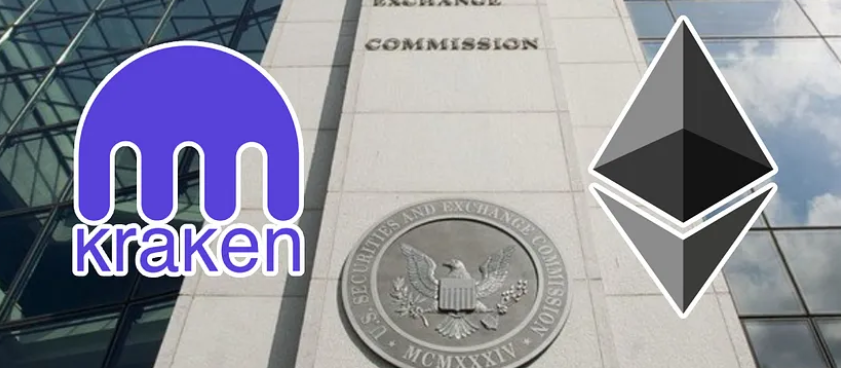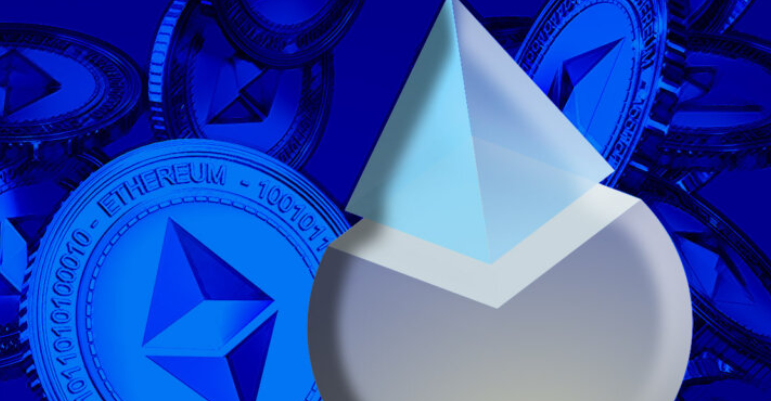Greetings, fellow investors!
The past few weeks have been kind to the cryptocurrency market, with a notable recovery. Contrarily, the U.S. Securities and Exchange Commission (SEC) recently took drastic measures against the U.S. crypto exchange, Kraken, and the stablecoin BUSD, used by Binance, resulting in a significant correction.
Proof of Stake (PoS) is the consensus mechanism relied upon by many blockchains, including Ethereum. With millions of users and thousands of decentralized applications (dApps), the Ethereum network has been securing itself with validators since the fall of 2022, which involves “staking contracts” that tie up deposits in Ethereum (ETH).
Validators are responsible for data storage, transaction processing, adding new blocks to the blockchain, and verifying them, and they receive a reward in the form of Ether (ETH) for their efforts. Since running an Ethereum node requires technical skills and at least 32 Ether (ETH), there is a growing number of service providers that enable investors to stake their ETH.
One of the most straightforward ways to do this is by staking on crypto exchanges like Bitpanda, Coinbase, Binance or Kraken. They manage Crypto staking on behalf of their clients and pay staking rewards directly to their users. It is a way for clients to receive staking rewards without having to go through the complicated process of validating blocks themselves.
The Exchanges take care of the validation process, which means users only need to deposit their Cryptocurrencies to start earning rewards.
Kraken in Hot Water with the SEC: What Does It Mean for Ethereum?
After a tumultuous year for crypto investors, the Securities Exchange Commission (SEC) is implementing new guidelines to ensure greater market security. One of its main requirements is the classification of several cryptocurrencies, such as the BUSD stablecoin, as securities. Additionally, the SEC is treating staking as a security trade.
Now, the US regulatory body has accused Kraken, a leading crypto exchange, of operating an unregistered securities trade, claiming that its staking service does not meet the proper requirements for a securities offering.
The SEC argues that Kraken determines the returns that its customers receive, as opposed to the variable reward rates established by the protocol. Furthermore, Kraken reserves the right not to pay its investors any returns at all. The regulatory body also found that the practice of locking up crypto assets in staking results in the loss of ownership rights, creating additional risks for investors.
In order to address these concerns, a settlement has been reached that requires Kraken to pay $30 million and discontinue its staking service for US customers. International clients will not be affected by the discontinuation of the service, but the agreement could have far-reaching consequences.
Staking is a common practice in blockchain networks, including Ethereum, which uses validators to secure its network. Validators are responsible for data storage, processing transactions, adding new blocks to the blockchain, and verifying them. For their efforts, validators receive a reward in the form of Ether (ETH). However, since operating a node requires technical expertise and at least 32 ETH, there is a growing number of service providers that enable investors to participate in ETH staking, with crypto exchanges like Coinbase or Kraken offering some of the simplest methods.
Kraken’s troubles with the SEC may cast a shadow on the future of staking and its impact on Ethereum, which relies heavily on the Proof of Stake (POS) consensus mechanism to secure its network. With millions of users and thousands of decentralized applications (dApps), Ethereum’s success could be at risk if staking is regulated as a securities trade. The settlement with Kraken may set a precedent for future regulations in the crypto market.
The SEC’s action against Kraken highlights the importance of adhering to regulatory guidelines and maintaining transparency in the crypto market.
Kraken Settlement with SEC: How it Could Affect the Future of Staking Services
The Securities Exchange Commission (SEC) has been cracking down on the cryptocurrency industry in order to provide more safety for investors.
In response to the devastating year for investors in 2022, the SEC has implemented new regulations to protect the market from fraudulent behavior.
One such regulation involves the classification of certain cryptocurrencies as securities, such as the stablecoin BUSD, and the treatment of staking services as securities trading.
According to the SEC, Kraken determines the returns its customers receive, as opposed to the variable reward rate set by the protocol. Kraken also reserves the right to not pay out any returns to investors. Furthermore, the SEC alleges that by locking in their cryptocurrency through staking, users lose ownership of their funds, which creates additional risks for investors.
To clear these allegations, Kraken has reached a settlement with the SEC, requiring them to pay $30 million and cease offering their staking service to US customers. International customers are not initially affected by the service’s suspension. Nevertheless, this settlement could have far-reaching consequences.
Impact on the Staking-as-a-Service Industry
This agreement between Kraken and the SEC could have long-term effects on other centralized trading platforms offering Staking-as-a-Service, such as Coinbase. Ethereum, for example, has over 16 million Ether worth approximately $25 billion staked, with 18% of that amount held by Kraken and Coinbase.
Paul Grewal, the Chief Legal Officer at Coinbase, has taken a proactive approach to this settlement and publicly stated that Coinbase differs from Kraken by linking user payouts directly to the rewards earned from staking.
Decentralized Alternatives
For decentralized alternatives like the liquid staking provider Lido (LDO) or the many independent staking pools and solo stakers, this settlement could present an excellent opportunity. The governance token of Lido, LDO, has risen by over 10% in recent days, according to Coinmarketcap.
Additionally, the decentralized autonomous organization (DAO) behind the Lido project is considering staking more Ether (ETH). On February 14th, the financial arm of the DAO (Steakhouse Financial) submitted a proposal that considers four possibilities, one of which involves staking or selling a portion or all of over 20,000 Ether (ETH) in the form of Lido Staked ETH (stETH). Many renowned blockchain analysts predict that the industry will be driven towards decentralized alternatives.
This settlement is not only relevant to the cryptocurrency industry, but to the wider financial industry as well. By providing a regulatory framework for the staking industry, investors can rest assured that their funds are protected. The settlement may also encourage the adoption of decentralized alternatives, allowing investors to diversify their staking options and take advantage of new investment opportunities.
The Power Shift in Staking Networks: The Rise of Decentralized Alternatives
Kraken’s decision to shut down its staking services could have long-lasting effects on staking-as-a-service offers from centralized trading platforms like Coinbase. The impact of this move could also be felt in the Ethereum network, where over 16 million Ether, valued at approximately 25 billion US dollars, is staked.
Kraken and Coinbase alone hold 18% of the Ether stake, making them a significant player in the network.
The closure of Kraken’s staking services may cause a shift in power distribution towards solo stakers and decentralized alternatives such as Lido or Rocket Pool. US regulatory authorities view Kraken’s staking offer as a type of interest offer, as they had provided fixed returns.
Therefore, Coinbase’s staking offer is not initially affected.
From the Ethereum (ETH) blockchain perspective, the regulatory measures are rather positive, as control over the network tends to shift to a larger group of people. An increased number of independent staking pools and solo stakers will prevent a few central entities from controlling a significant portion of the stake and having too much influence over the network.
Chart-wise, In fact, last week’s Golden Cross, where the orange 50-day moving average crossed above the red 200-day moving average, has set the basis for a continued upward trend in Ethereum’s price.
But before diving into the reasons why you should invest in Ethereum, it’s important to note that there’s an upcoming event that could impact its price in the short term. The Shanghai-Update in mid-March will release staked Ether and rewards, which could potentially flood the market with sell orders. But, this shouldn’t deter you from investing in Ethereum in the long term, as it has strong fundamentals and a promising future ahead.
However, the SEC’s actions, in the case of Kraken, are questionable, as Kraken had little opportunity to properly register its staking offer, as Kraken’s CEO, Jesse Powell, sarcastically pointed out on Twitter.
As Kraken bows out of the staking market, it remains to be seen which player will fill the gap, and whether decentralized alternatives will become the new norm.
Are you ready to join the exciting world of cryptocurrency trading and take advantage of the incredible opportunities that it offers? Now is the time to take action and start trading Ethereum on Bitpanda or Coinbase!
With its incredible potential for growth, Ethereum’s native cryptocurrency, Ether, has become one of the most popular and widely traded digital assets in the world. And with Bitpanda and Coinbase, you have two of the most trusted and secure platforms available to you, providing you with access to a world of exciting investment opportunities.
But don’t just jump in blindly — take a strategic approach to your trading and maximize your potential gains with a weekly DCA strategy.
By investing a fixed amount of money every week, you can take advantage of market fluctuations and accumulate more Ethereum over time, while minimizing the risk of buying in at the wrong time.
So, what are you waiting for?
Happy Investing!
 English
English
 Deutsch
Deutsch
 Español
Español
 Français
Français
 Português
Português
 日本
日本
 한국인
한국인
 Türkçe
Türkçe
 Русский
Русский
 Tiếng Việt
Tiếng Việt














